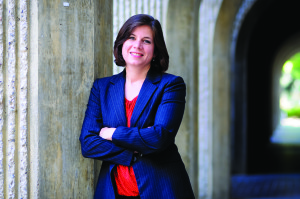SLS Professor Questions Secrecy of Some Medical Malpractice Settlements

Some types of nondisclosure provisions in medical malpractice settlements can never be justified, and others should remain subject to negotiation, argue Michelle M. Mello, a professor at Stanford Law School and Stanford University School of Medicine, and Jeffrey N. Catalano of Todd & Weld in Boston, in a commentary published today in JAMA Internal Medicine. Their comments accompany a study released today in the same journal.
In their commentary, Mello and Catalano write, “Because patients should not be forced to choose between compensation and acting on a perceived ethical obligation to try to prevent harm to others, settlement agreements should not restrict reporting to regulatory bodies. Adopting state statutes that prohibit these provisions involves less burden and uncertainly for plaintiffs than requiring plaintiffs to challenge them in court.”
They also point out, “Restrictions on public disclosure of the facts of the event, without identifying the health care professional(s) or institutions, are also hard to justify. Defendants ordinarily should not insert them. There may be very unusual situations in which the parties agree that, all things considered, such a provision is reasonable. Such cases, however, should be exceptional.”
They conclude that other types of nondisclosure provisions may be justifiable in a broader range of cases and should remain negotiable.
In the study released today by JAMA Internal Medicine, “Use of Nondiclosure Agreements in Medical Malpractice Settlements by a Large Academic Health Care System,” William M. Sage of the School of Law at the University of Texas at Austin and coauthors found there was little standardization or consistency in the application of nondisclosure claims. They studied 124 cases and 110 settlement agreements between 2001 and 2012 on behalf of University of Texas physicians before, during and after tort reform legislation in Texas. The University of Texas System self-insures malpractice claims for 6,000 physicians at six medical campuses in five cities.

Husen Darmawan
I think that you should write more on this topic, it might not be a taboo subject but usually people don’t talk about such issues. To the next! Many thanks!